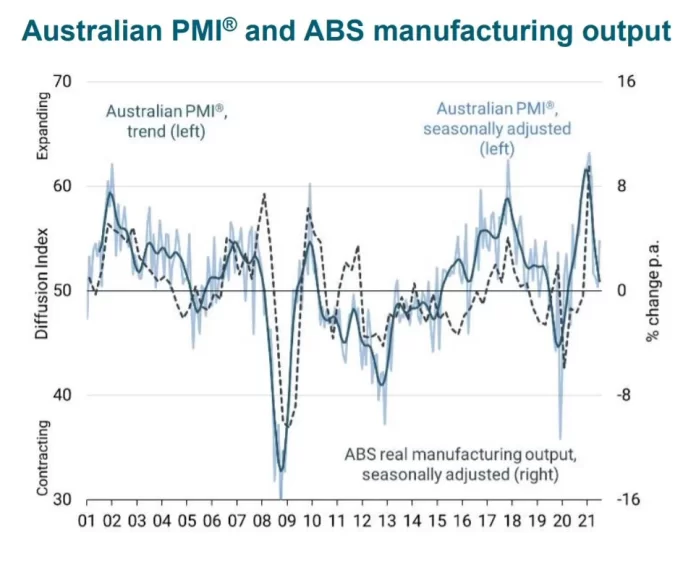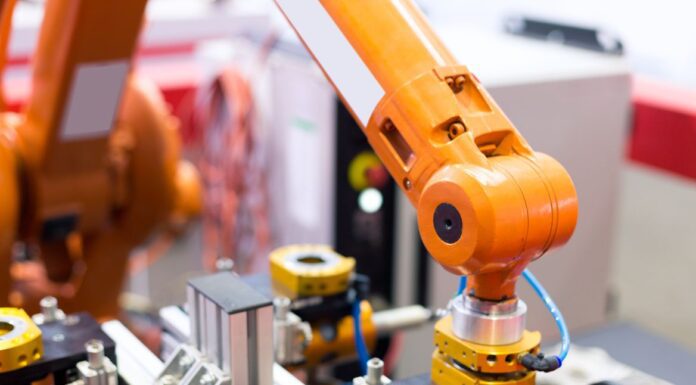
In November, the Australian Industry Group’s Australian Performance of Manufacturing Index (Australian PMI) increased by 4.4 points to 54.8, marking the first month of recovery after three months of stagnation.
According to the latest Ai Group survey, all activity indexes in the Australian PMI increased or remained unchanged in November, with the ongoing expansion of forward orders indicating that further recovery is possible with the removal of remaining limitations.
With the exception of chemicals (down 6.4 points to 50.6), all manufacturing sectors in the Australian PMI increased in November.
Food & drinks rebounded substantially from contraction to expansion (up 19.9 points to 57.3), largely reversing a huge drop the previous month, while metal products also shifted from contraction to expansion (up 7.8 points to 56.4).
Following relatively weak results in October, all seven activity indices in the Australian PMI® expanded or remained stable in November, with deliveries (up 12.2 points to 53.4), stocks (up 7.0 points to 58.6), and exports (up 8.5 points to 54.6) all expanding strongly. New orders continued to grow at a healthy rate (up 1.0 points to 59.3).
The input prices index fell 3.5 points to 78.3 in November but remained high as firms continued to report high freight costs and difficulty obtaining inputs. The selling prices index rose 4.2 points to 68.1, indicating that manufacturers continued to pass on part of their cost increases to customers.
In November, the average wages index fell 1.3 points to 62.4 as skilled labor shortages, vaccination requirements, and staff in isolation combined to restrict staff availability and increase wage pressures.
Commenting on these findings, Ai Group Chief Executive Innes Willox said:
“With restrictions easing, performance improved across the manufacturing sectors with a sharp rebound in food & beverages backed by strong growth among machinery & equipment, metal products and building products manufacturers,” he said.
“Manufacturers are operating at relatively high capacity and continue to voice concerns about reliability of the supply of inputs and the difficulty in filling new positions due to worsening skill shortages and localised labour shortages.
“While input prices remain high and wages growth has firmed, market conditions are supporting some recovery of higher costs in market pricing of manufactured goods.”
















